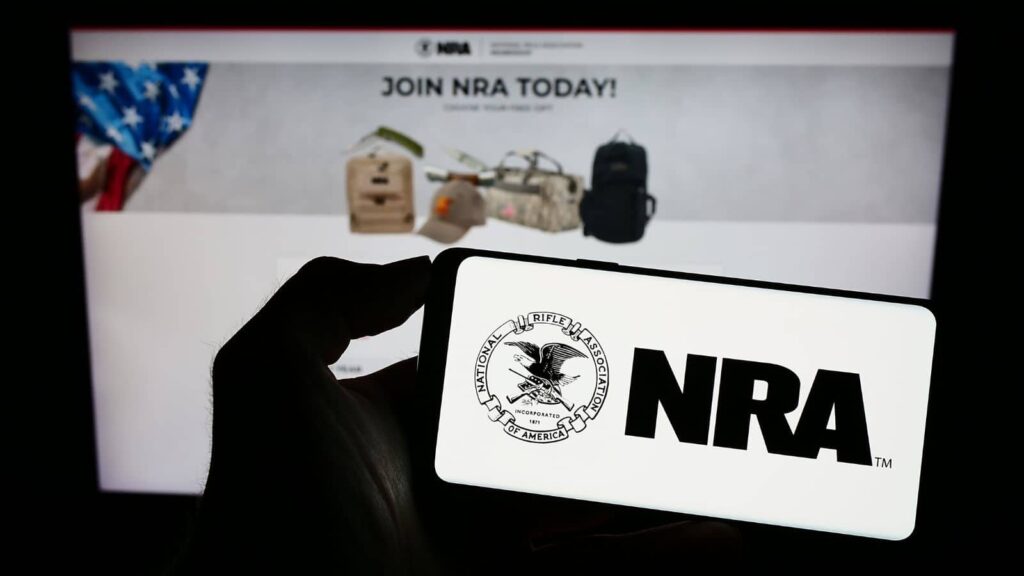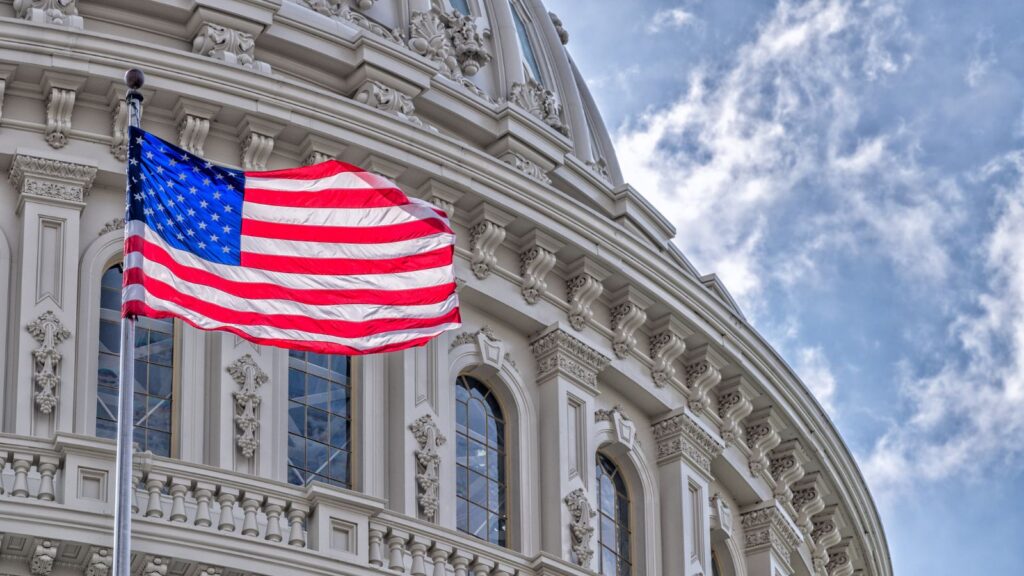California has decided to change things for gun stores by introducing a special code for credit card sales. It’s like asking for an ID, but for where you shop. At the same time, states like Tennessee and Georgia aren’t having it, and they passed laws on the very same day to block this move. Let’s find out what’s going on.
California Sets the Pace

As of July 1, California changed the laws to give every gun store transaction its own unique code. This works like a digital fingerprint for where people spend their money to keep a closer eye on gun sales. Supporters of the measures claim that it will make things safer in the state.
What’s This Code Anyway?

A Merchant Category Code (MCC) doesn’t necessarily let companies see what you buy but instead where you buy. Credit card companies use it to sort businesses and manage the nitty-gritty of transactions. This keeps the financial world running over without spying on your shopping bag.
Colorado Jumps on Board

Colorado also created a law similar to California’s, although theirs is more local and limited to shops within state lines. Officials are keen to track gun sales but also want to respect the local business scene. This is part of a growing trend where states change national initiatives to fit their specific state contexts.
Pushback from Other States

However, right as California kicked off its new code, Tennessee and a few other states chose to block it. They’re worried about gun buyers’ privacy and believe it’s their right to shop without extra scrutiny. Officials in California claim that they’re trying to keep citizens safe, while officials in other states argue it infringes on their personal freedoms.
Legal Challenges in Florida

In Florida, lawmakers are pushing for legislation that would ban any future attempts to track gun and ammunition sales via MCCs. This is similar to efforts in states like Tennessee to maintain privacy. They argue that the change in the law would be unnecessary surveillance that violates the Second Amendment.
Ohio’s Stance Against MCC for Firearms

Ohio also passed legislation similar to Florida’s. This prevents financial institutions within the state from using credit card merchant codes to track any firearm or ammunition sales. The Ohio law aims to protect people’s privacy and prevent companies from surveilling customers on constitutional grounds.
Alabama’s Protective Legislation

In Alabama, officials passed the Second Amendment Financial Privacy Act, which prevents the use of MCCs for firearm transactions. The law prevents companies from creating a record that could work as a gun registry. Supporters claim that financial institutions shouldn’t unfairly discriminate against firearm transactions.
Global Support

In 2022, the International Organization for Standardization allowed officials to create a new MCC just for gun shops. This was supposed to help banks provide a clearer global financial trail for gun transactions. With this new MCC, financial institutions can streamline how they process and report these sales to comply with international regulations on gun sales.
Credit Card Giants Initially Onboard

Several big credit card companies originally supported this new gun shop code, although they changed their minds last year. Several states that criticized this idea pushed back against these companies and forced them to backtrack. Clearly, these credit card companies must balance their worldwide operations against what’s happening in individual states.
New York Might Join the Club

The New York Senate recently passed a bill looking to follow California and Colorado. It’s currently unclear if the governor will give the bill the final nod, but either way, it’s clear New York wants to be part of moves to monitor gun transactions. If approved, this could mark a big change for one of the largest states in the U.S.
The NRA Steps In

Of course, the NRA has several things to say about it. They have encouraged lawmakers to say “no” to MCCs for gun shops, arguing it’s a step too far in tracking gun owners. It appears as though they’re willing to use their clout to sway state laws, as they’ve done so before to change gun legislation.
NRA Statement

In a statement, the NRA said, “Collecting firearm retailer financial transaction data amounts to surveillance and registration of law-abiding gun owners. Those promoting this scheme are proponents of firearm and gun owner registration and advocate against firearm owners’ privacy. Therefore, it should be assumed that the goal of this program is to share all collected firearm retailer MCC data with government authorities and potentially private third parties that may include gun control organizations and anti-gun researchers.”
A Surge in Gun Buys

Even with all the debates, or maybe because of them, Americans are buying guns in massive numbers. Over 5.5 million guns were sold at the start of this year alone, which worries over potential new restrictions could drive. Some buyers are looking to purchase firearms before the laws change.
Senator Support

Several high-profile senators, including Sens. Kirsten Gillibrand and Elizabeth Warren, have supported MCCs because they think they’ll allow financial institutions to catch illegal gun purchases before they lead to violence. In fact, some have even called for these codes to be used across the country. Of course, some senators are against it.
A Public Health Issue

The debate is part of other concerns over gun violence, which some officials are calling “a public health issue.” The idea is that better tracking could help prevent tragedies, as there is already a lot of pressure on lawmakers and companies to tackle gun misuse. Of course, they’ll need to do this without overstepping personal freedoms.
Privacy Worries

On the flip side, many people worry that these codes could invade privacy. The fear is that tracking where people shop for guns could lead to Big Brother-style surveillance being used for political agenda. Even so, supporters of the bill argue that it will help to keep more Americans safe.
Economic Impact on Gun Shops

If MCCs become widespread, this could make things difficult for gun shops, as it could change how they handle transactions. To deal with this, businesses may have to change things like customer privacy and how they manage their inventories and sales strategies. Such changes will cost time and money.
Cash Transactions May Rise Due to MCC

The new code is also likely to increase the number of cash transactions for firearms and ammunition retailers (FFLs). They may have to deal with higher processing fees, which could make cash payments more appealing to avoid these charges. Reducing credit card processing fees could financially benefit gun shops.
19 Grim Realities of Dating After 50 That Are Often Overlooked

19 Grim Realities of Dating After 50 That Are Often Overlooked
26 Things That Will Be Extinct Because Millennials Refuse to Buy Them

26 Things That Will Be Extinct Because Millennials Refuse to Buy Them
24 Outdated Slang Terms You Absolutely Shouldn’t Be Using Anymore

24 Outdated Slang Terms You Absolutely Shouldn’t Be Using Anymore
25 Hardest Parts About Getting Older That No One Ever Talks About

25 Hardest Parts About Getting Older That No One Ever Talks About






